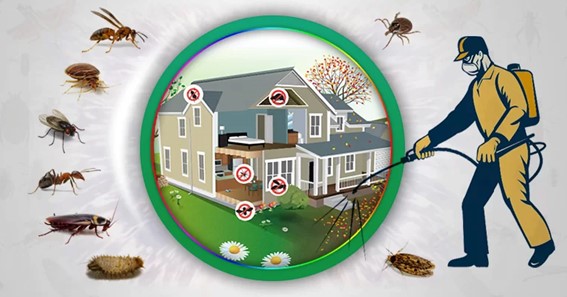Business insurance is a must for businesses and any industry. It is a crucial step to protecting your business assets and avoiding significant financial loss in case of a liability. A pest control business is one company that is exposed to unique risks. Your ability to identify the degree of risk present in your business and mitigate that is crucial for your business continuity.
Risks Of Owning A Pest Control Business
Here is a harsh truth that pest control businesses must know: this type of business faces more risks than an average business. The nature of the industry can pose a danger to your employees, the customers, and the environment. Therefore, you have to take a proactive approach to make sure that you are covered for these risks before you could incur a significant financial loss.
click here – Government Fashion Designing Colleges In Bangalore
Due to the La Niña conditions in many parts of Sydney and New South Wales, more homeowners and businesses are turning to pest control services. This is excellent news for the pest control industry; however, it also highlights the industry’s ability to protect the people and the properties they are working on to ensure everyone’s safety while performing their job.
The most common types of risks that pest control businesses face are the following:
- Exposure to harmful chemicals
- Injury to employees or customers
- Environmental hazards (such as the misuse of chemicals or pesticides)
- Auto accident risks (in the transport of hazardous chemicals and pesticides)
- Professional liability (in the event of faulty services)
- Customer property damage
The above risks are just some of the most common ones you will encounter in this business. There could be more risks depending on your location and the type of services that you offer.
Finding Insurance For Pest Control Businesses
Choosing the right coverage is essential when buying an insurance policy for a pest control business. Your selected coverage will give you the protection you need for the identified risks.
Here are the standard policies and coverage that you must consider for your pest control business:
- Professional Liability – This coverage is for any form of negligence resulting from delivering pest control services to your employees – either directly or indirectly.
- Business Auto Insurance – This coverage offers protection when transporting pesticides and other chemicals for pest control.
- Tools and Equipment Coverage – This coverage offers financial protection in case of loss, damage, or theft of essential business tools and equipment. It is provided under the assumption that a business operation is greatly affected without access to these tools and equipment.
- Pollution and Fumigation Liability – This coverage protects your business from financial loss if the chemicals used to cause significant risk for pollution in the treated area/s. It can also cover liabilities when someone in the treated house gets sick from the chemicals and pesticides.
- Workers Compensation Insurance – This coverage offers financial protection and assistance to injured employees while performing their duty. The compensation given will vary based on the extent of the injury.
- Pest Inspection Damage Liability – This coverage protects your business in case of damage to the property upon the initial inspection process. You can also use it to pay for legal and settlement fees.
You can turn to an insurance broker to help customize your insurance policy to match the unique risks of your pest control business. A tailored insurance plan will ensure you get legal and financial protection.
click here – 5 Beginner Tips For Buying Gold And Silver Bullion
How Much Does Pest Control Business Insurance Cost?
There is no one-size-fits-all approach to the type of insurance that a pest control business would need. Therefore, you need a good insurance broker to help assess your company’s risks and find the best coverage to match that.
The cost of buying business insurance is costly. However, it is more cost-efficient to protect your business with the right policy rather than suffer the consequences of any liability that your business could face later. You could easily spend thousands of dollars on repairs and legal fees if your company is liable for any damages.
